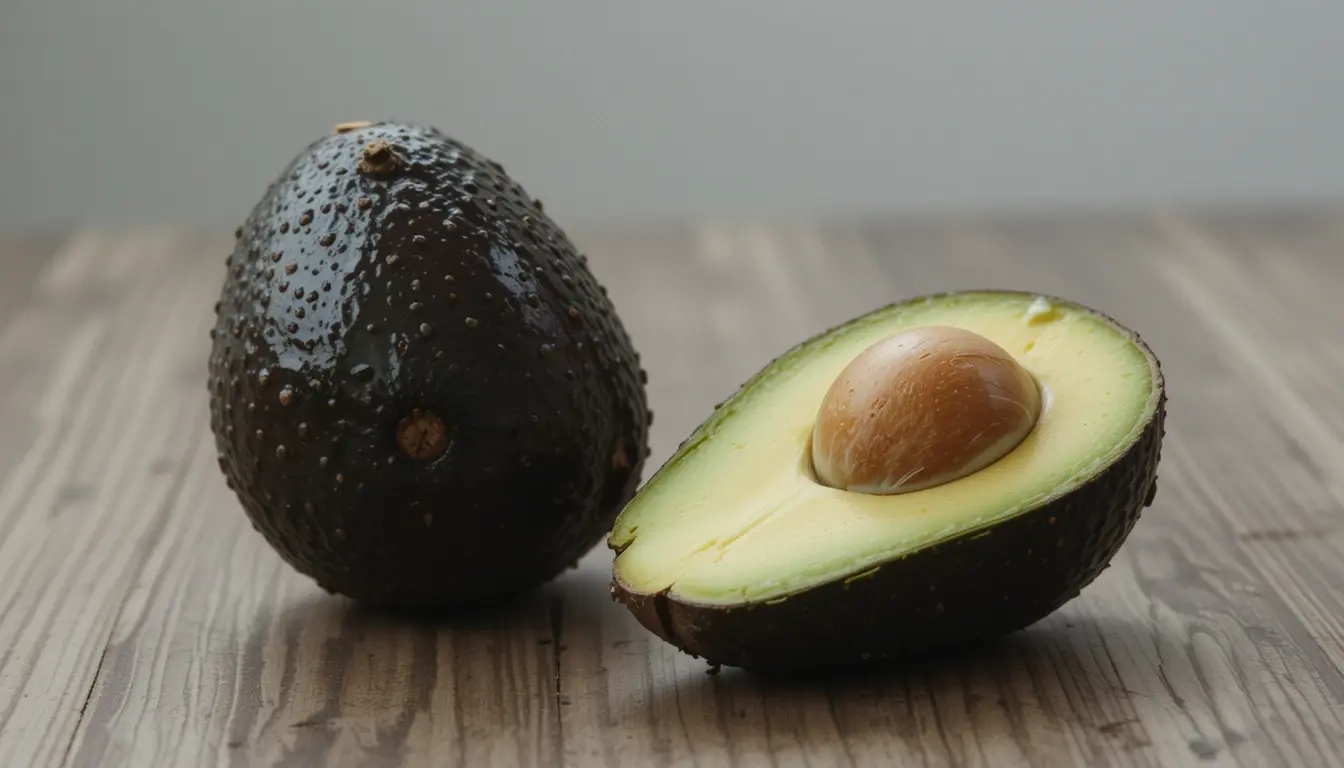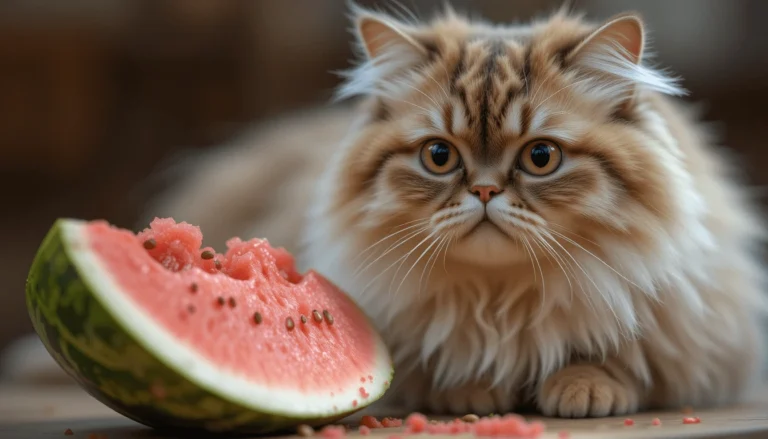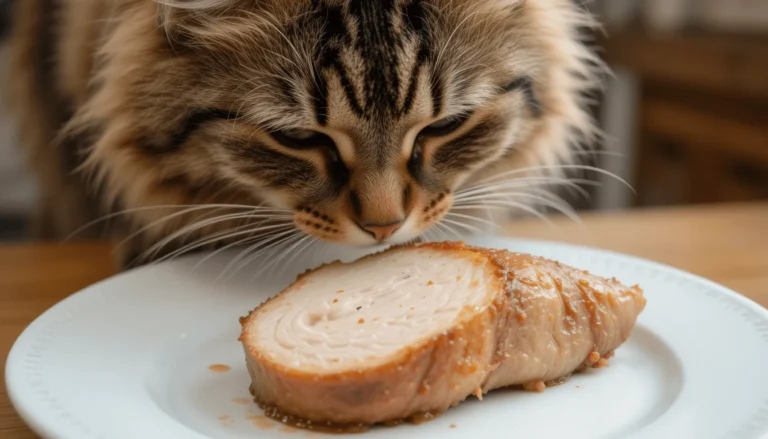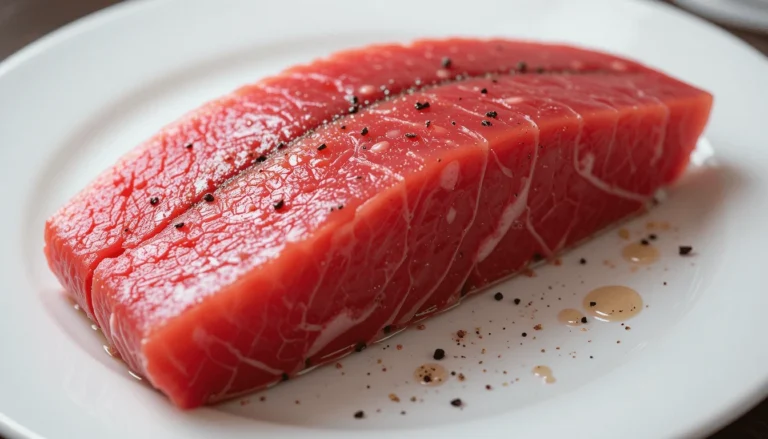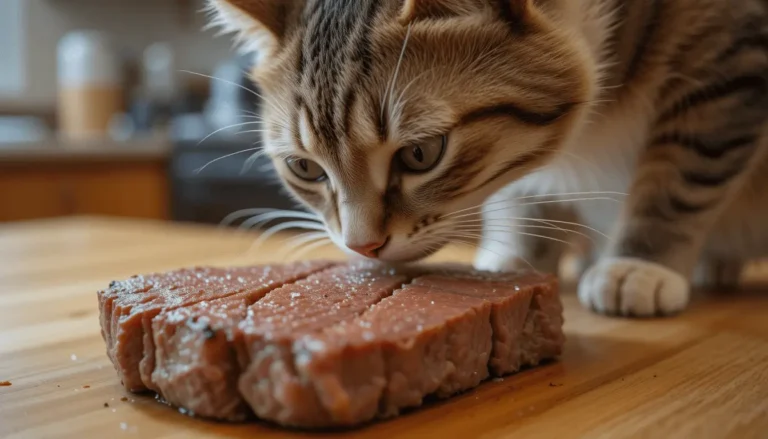Can Cats Eat Avocado? Safety, Risks, and Healthy Alternatives
Introduction
Picture this: You’re enjoying a delicious avocado toast when suddenly, your curious feline leaps onto the counter and takes a quick lick. Your heart races—can cats eat avocado? Is it toxic? Before you panic, let’s uncover the truth.
Avocados are a superfood for humans, packed with healthy fats and vitamins. But for cats, the answer isn’t so simple. While small amounts may not always cause immediate harm, avocados contain persin, a toxin that can be dangerous for pets. According to the ASPCA (American Society for the Prevention of Cruelty to Animals), avocado is listed as “mildly toxic” to cats, primarily due to this compound.

In this guide, we’ll explore:
Is avocado safe for cats? (The science-backed truth)
Why avocado can be risky (Persin, choking hazards, and more)
What to do if your cat eats avocado (Emergency steps)
Healthy, cat-safe alternatives (Because your kitty deserves the best!)
Let’s dive in—your feline friend’s safety depends on it!
Is Avocado Safe for Cats? The Science-Backed Truth
1. What Does Science Say About Avocado and Cats?
Avocados contain persin, a natural fungicidal toxin found in the fruit, pit, leaves, and bark. While dogs and large animals (like cows and horses) can suffer severe reactions, cats are somewhat less sensitive—but not entirely safe.
- ASPCA lists avocado as “mildly toxic” for cats, meaning small amounts may cause digestive upset, but large quantities could be harmful.
- A 2012 study published in Toxicon revealed that persin may lead to myocardial damage (problems affecting the heart muscle) in certain animals, although its effects on cats remain less thoroughly researched.
- Veterinary reports suggest that while fatal avocado poisoning is rare, gastrointestinal distress (vomiting, diarrhea) is common.
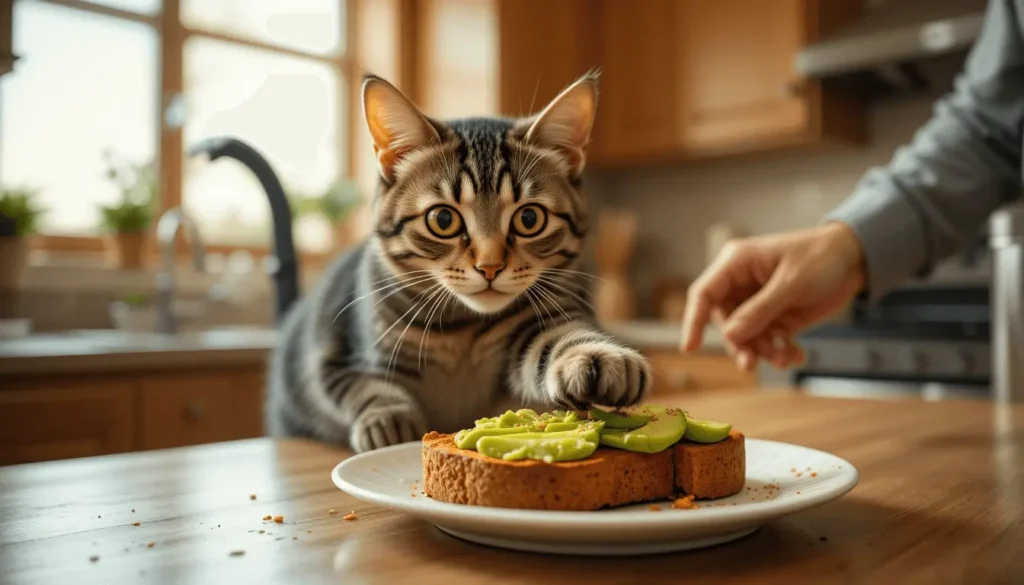
2. Which Parts of Avocado Are Most Dangerous?
Not all parts of an avocado are equally risky:
| Avocado Part | Risk Level for Cats | Potential Danger |
|---|---|---|
| Flesh (ripe avocado) | Moderate | Persin + high fat (can cause pancreatitis) |
| Pit (seed) | High | Choking hazard, intestinal blockage |
| Skin & Leaves | Very High | Concentrated persin, hard to digest |
Key Takeaway: Even if the flesh is “less toxic,” the pit and skin are far more dangerous—keep them away from cats!
3. Signs Your Cat Ate Avocado (Toxicity Symptoms)
If your cat sneaks a bite, watch for:
Mild Symptoms (Likely with small amounts):
- Vomiting
- Diarrhea
- Lethargy
🚨 Severe Symptoms (Rare but dangerous):
- Difficulty breathing (persin toxicity)
- Swollen abdomen (possible blockage from pit)
- Pancreatitis (from high fat content)
If you see severe symptoms, contact your vet or the Pet Poison Helpline immediately.
Why Is Avocado Bad for Cats? Hidden Dangers Explained
1. The Role of Persin in Feline Toxicity
Persin is a natural fungicide in avocados that disrupts cellular function in animals. While cats are more resistant than birds or livestock, they can still experience:
- Stomach irritation (vomiting, diarrhea)
- Rare but serious cases of heart stress (based on animal studies)
2. Choking & Intestinal Blockage: The Pit Problem
The avocado pit is a major hazard because:
- It’s too large to pass through a cat’s digestive tract.
- If swallowed, it can cause life-threatening blockages, requiring emergency surgery.
“In my 10 years as a vet, I’ve seen two cases of cats needing surgery after eating avocado pits. It’s not worth the risk.” — Dr. Sarah Wooten, DVM
3. Other Hidden Dangers: Guacamole & Additives
Many avocado-based foods (like guacamole) contain:
- Onions & garlic (toxic to cats, causing anemia)
- Salt and spices can cause dehydration or even sodium poisoning in cats
Bottom Line: Even if avocado itself isn’t deadly, the added ingredients in human food make it riskier.
What to Do If Your Cat Eats Avocado (Emergency Steps)
1. When to Call a Vet Immediately
🚨 Seek emergency care if your cat:
- Ate the pit or skin (high blockage risk)
- Shows difficulty breathing (persin toxicity)
- Has persistent vomiting/diarrhea (dehydration danger)
- Appears lethargic or collapses
Pro Tip: Keep your vet’s number and the ASPCA Animal Poison Control (888-426-4435) saved in your phone.
2. Home Care for Mild Exposure
However, if your cat only licked a small amount of the flesh:
Monitor closely for 24 hours
Withhold food for 4-6 hours (then offer bland food like boiled chicken)
Encourage water to prevent dehydration
Vet Insight:
“Most cats who eat a tiny bit of avocado flesh will just have an upset stomach. But never induce vomiting unless your vet instructs you to.” — Dr. Gary Richter, DVM
3. Diagnostic Tests Your Vet Might Perform
If you rush to the clinic, expect:
- X-rays (to check for pit blockages)
- Bloodwork (to assess organ function)
- IV fluids (for dehydration from vomiting)
Safe & Healthy Alternatives to Avocado (Cat-Approved!)
1. Best Fruits Cats CAN Eat
These low-sugar, non-toxic options are safer treats:
- Blueberries (antioxidants)
- Seedless watermelon (hydrating)
- Bananas (tiny amounts) (potassium boost)
Serving Tip: Always remove seeds/pits and serve in pea-sized pieces.

2. Cat-Safe Vegetables
Try these steamed or puréed for easy digestion:
- Cooked carrots (vitamin A)
- Steamed green beans (fiber)
- Zucchini (low-calorie)
3. Commercial Treats vs. Human Food
Stick to vet-recommended treats like:
- Freeze-dried chicken bites (high protein)
- Dental health chews (tartar control)
Avoid “human food” traps like:
- Dairy (many cats are lactose intolerant)
- Raw fish (thiamine deficiency risk)
Conclusion
While a tiny lick of avocado flesh likely won’t harm your cat, the risks (persin, pits, pancreatitis) far outweigh any benefits. Instead, treat your feline to species-appropriate snacks that keep them thriving. After all, wouldn’t you rather see them chase a catnip toy than risk a midnight vet trip?
Final Thought: When it comes to curious kitties and human foods, isn’t it better to play it safe?
FAQ
1. Can a small piece of avocado kill a cat?
No, but it may cause vomiting/diarrhea. The pit and skin are far more dangerous due to blockages and concentrated persin.
2. How long after eating avocado will symptoms appear?
Usually within 6-12 hours if symptoms occur. Monitor closely for 24 hours.
3. Are there any benefits of avocado for cats?
No. Cats are obligate carnivores and get zero nutritional value from avocados.
Recommended Resources
Want more cat nutrition tips? Subscribe for vet-approved guides! 🐱💚

